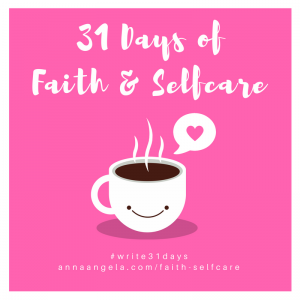While service is part of selfcare, knowing when to say “no” is also important. It is also part of selfcare.
“No” sounds negative. Growing up, I was never taught to say, “No.” I wasn’t taught to ask questions or weigh my personal needs against the needs of others. To be a good girl and ultimately a good person, I was taught to be respectful and that meant simple, blind, and immediate obedience.
When I was in my teen years, one of the biggest contentions I saw between my friends and our parents was what the adults called “attitude.” Sure, teenagers of all generations are known to have attitude, but what my friends did was talk back. Not in sass or in rudeness, but they questioned our parents. They asked why. They debated issues. They tried to find compromise. What our parents wanted was simple, blind, and immediate obedience. It was what they grew up with in the Philippines. Meanwhile, my friends and I were growing up in an American culture where it was okay to ask questions, to debate issues, to try to find compromise.
Yes, I’m pretty sure there were many times we all got sassy and rude, but I still remembered being humiliated by my teachers in school in the Philippines because I didn’t meet their expectations to speak louder when answering a question or some other trivial thing. Then I come to the United States where my teachers gave me chance after change to get things right with patience and understanding, where we laughed at jokes together, and where they encouraged us to question things.
I think…I hope it’s different now, but growing up was like standing on the line between two sides. I understood the culture and upbringing our parents were coming from at the same time I understood and lived in the culture of my friends. I knew why our parents said we gave them attitude, and knew why my friends were exasperated with parents who didn’t listen.
“No” is an important word to learn and use.
Saying no doesn’t mean you’re sassy or rude.
Saying no doesn’t mean you’re obstinately disobedient.
Saying no gives you permission to prioritize yourself first.
Saying no empowers you to stand up for yourself.
Saying no to some things means saying yes to other things.
The opposite is true. Saying yes to some things means saying no to other things. We need to figure out what we want to say yes to and what we want to say no to. What will help you better practice selfcare…or practice better selfcare? When figure out whether or not to say no, ask yourself this question:
If you only had one month to live, would you do this?
In business, I learned about exit strategies. It’s a way out for when things are starting to go bad or for when things are really good. It reminds you that not all businesses last forever, and yours probably won’t. Even if it does, you won’t last forever. So make the most of the time you have.
If we apply the idea of exit strategies to other parts of our lives, we can figure out which things will help us make the most of our limited time. It will help us figure out what to say yes to, and what to say no to.


